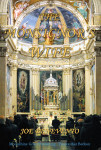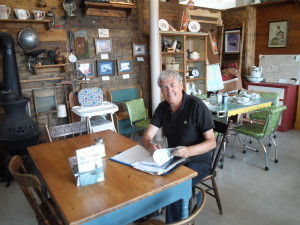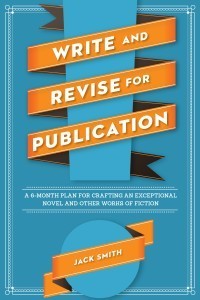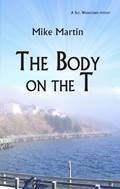Elizabeth Spann Craig's Blog, page 144
December 21, 2013
Twitterific Writing Links
by Elizabeth S. Craig, @elizabethscraig
Twitterific links are fed into the Writer’s Knowledge Base search engine(developed by writer and software engineer Mike Fleming) which has over 23,000 free articles on writing related topics. It’s the search engine for writers.
Have a great week and a Merry Christmas to all who celebrate.
7 Lessons Learned from Blogging: http://dld.bz/den3c @JL_Campbell @AlexJCavanaugh
The Range Of Search: A Key to Understanding (and Writing) Mysteries: http://dld.bz/denR2
This week’s #EtherIssue Live Chat: Ebook Sales Flattening? Current Trends. Today at 11 a.m. ET 4 p.m. GMT 5 p.m. CET @Porter_Anderson
Is the penetration of ebooks in the US market ‘flattening out?’ http://dld.bz/devHF @Porter_Anderson @juliebosman
Creating a Submission Package: http://dld.bz/deeDt @YAMuses
Advice for writers from @ChuckWendig: http://dld.bz/demdQ
How to remember more of what you read: http://dld.bz/demee
15 Ways to Zig When You Want to Zag: http://dld.bz/demej @lizstrauss
Tips for more effective copywriting: http://dld.bz/deme4 @demianfarnworth
5 tips for writing a great story: http://dld.bz/demeW @TEDNews
5 tips for a successful book launch: http://dld.bz/demf8 @LiterallyPR
Why is Genre Important to Success? http://dld.bz/demfG @StoryMeBad
The Pros and Cons of Writing Contests: http://dld.bz/demfN @jamigold
Talking about your character: Posture: http://dld.bz/demgc @nownovel
Writing and the Creative Life: Flow: http://dld.bz/demgm @gointothestory
Keeping it Real – Female Protagonists in YA Lit: http://dld.bz/demgw @JennWalkup
Thoughts on character mannerisms: http://dld.bz/demg5 @NowNovel
9 Ways to Find Writing Ideas: http://dld.bz/demgE @katieaxelson
10 steps to becoming a successful writer: http://dld.bz/demgX @mbcollings
Explore a character’s junk drawer: http://dld.bz/demhr
How to pace a crime novel: http://dld.bz/demh6 @nownovel
Managing time in your novel: http://dld.bz/demhE @lindasclare
Diluting your brand: http://dld.bz/demhP @MelindaBPierce
An agent warns against red flags when naming characters: http://dld.bz/depF5 @JennieGoloboy
How to uncover the mood of your novel: http://dld.bz/depFG @nownovel
10 Essential Non-Writing Tools To Help Writers Write: http://dld.bz/depFM @CompletelyNovel
Simple Tricks to Unstick Your Plot: Where Is Everyone? http://dld.bz/depFQ @stdennard
Tips for choosing pen names: http://dld.bz/depFU @fictorians @Nathan_Barra
Then and Now —the Pace of Publishing: http://dld.bz/depGn @MindyKlasky
Critique Etiquette: Should You Resubmit Revisions? http://dld.bz/depGr @ava_jae
How 1 writer pinches from Pixar and Bad Robot to create awesome stories: http://dld.bz/ddQ3Q @guardianbooks
10 Unique Gifts for Booklovers: http://dld.bz/depGT @sarahwinfrey
9 Great Albums To Accompany Your Writing Process: http://dld.bz/depGZ @chris_shultz81
Tips for creating loveable flaws in your characters: http://dld.bz/depHt @nownovel
5 tips for writing romance: http://dld.bz/detjq @nownovel
Self-Publishing 101: The Good, the Bad, and the Ugly: http://dld.bz/detj2 @i3DS
Surviving the Offer – and Letting the Agent Deal: http://dld.bz/detj7 @susanspann
The Art of the Amazon Sale: Improving Rankings, Selling More Books, and Gaining Exposure: http://dld.bz/detjA @goblinwriter
Book Marketing: Generosity, Social Karma And Co-opetition: http://dld.bz/detjC @thecreativepenn
Your book’s 2nd act–the PLAN: http://dld.bz/detjU @AlexSokoloff
Book Marketing 101: http://dld.bz/detjW @janefriedman
The Four Types of Character Flaws: http://dld.bz/detke @angelaackerman
Hanging Writing Rules Out to Dry: http://dld.bz/detk7 @kerrylonsdale
4 Ways Childhood Reading Shapes Your Writing: http://dld.bz/detkF
Why the ‘marriage plot’ need never grow old: http://dld.bz/deu5w @pageturner @adellewaldman
Tips for staying committed to writing in the face of disappointment: http://dld.bz/deu58 @EddieLouise
Write Less, Not More: How to Slice and Dice Your Content: http://dld.bz/deu5A @jeffgoins
A gut check for writers: http://dld.bz/deu5H @SPressfield
Turning notes into a novel: http://dld.bz/cNTa7 @nownovel
Inside stories of memorable children’s books: http://dld.bz/deu5M @PublishersWkly
Tips for writing endings: http://dld.bz/deu5P @rxena77
5 Pearls of Wisdom from Bestselling Author Elizabeth George: http://dld.bz/deu6s @debutanteball
How a crit and accountability partner can help your writing: http://dld.bz/deu6w @jodcase @writersdigest
Famous Writers’ Sleep Habits vs. Literary Productivity, Visualized: http://dld.bz/deu68 @brainpicker
Why Every Writer Should Work for a Literary Magazine: http://dld.bz/deu7a @submittable @NathanielTower
A glossary of industry terms for writers: http://dld.bz/deu7e @juliabroadbooks
Small is the New Big: How to Attract Your Ideal Reader: http://dld.bz/deu7m @wherewriterswin
“10,000 Hours”: http://dld.bz/dezW7 @artoffate
9 Tips From A Best-Selling Novelist: http://dld.bz/dezWM @HesterHest @Forbes
2014 Writing Progress Spreadsheet: http://dld.bz/dezXh @jamieraintree
Advice to aspiring screenwriters: http://dld.bz/de3nT @Soulofthebiz
Author, Know Thyself: http://dld.bz/de3nV @Shay_Goodman
Rejection. Straight up, no ice. http://dld.bz/de3pc @tobywneal
4 Key Book Publishing Paths: http://dld.bz/cU564 @janefriedman
Myth–to sell, you must write what’s hot: http://dld.bz/de3pe @deanwesleysmith
Make your hero complex by choosing the right flaws: http://dld.bz/de3pf @angelaackerman
What 1 writer learned about going perma-free: http://dld.bz/de3pm @bryancohenbooks
Conference Takeaways on Self-Editing: http://dld.bz/de3pu
5 Ways to Get Your Pins Noticed on Pinterest: http://dld.bz/de3px @smexamimer
How narrating books is changing 1 writer’s writing: http://dld.bz/de3p4 @ventgalleries
How Dungeons and Dragons Can Help Your Writing (Even If You Don’t Play!) http://dld.bz/de3p7 @amylukavics
How to use Pinterest to attract new readers: http://dld.bz/de3p8
Writing heals: http://dld.bz/de3pA
Thoughts on character mannerisms: http://dld.bz/demg5 @NowNovel
10 steps to becoming a successful writer: http://dld.bz/demgX @mbcollings
9 Great Albums To Accompany Your Writing Process: http://dld.bz/depGZ @chris_shultz81
5 tips for writing romance: http://dld.bz/detjq @nownovel
Inside stories of memorable children’s books: http://dld.bz/deu5M @PublishersWkly
Every Article on Screenwriting You Never Have to Read Again: http://dld.bz/de3ye @scriptmag @dannymanus
9 Pointers for Getting Your Novel Included in Book Clubs: http://dld.bz/de3yf
Not self-pub, not trad pub–the 3rd option: http://dld.bz/de3yq @shewritesdotcom
What’s the Key to Solving the Book Discoverability Problem? http://dld.bz/de3yr @pubperspectives @passivevoiceblg
For the stressed writer: 10 Remarkable Ways Meditation Helps Your Mind: http://dld.bz/de3yx @psyblog
Keep at it–eventually, you’ll write a masterpiece: http://dld.bz/de3yy @writerunboxed
20 + Free Resources to Create a Simple Ebook: http://dld.bz/de3y5 @lahara
How to Rescue Time for Writing… and Author Marketing: http://dld.bz/de3y8 @wherewriterswin
12 Ways To Craft A Headline For Social Media and Blogging: http://dld.bz/de3yA @12Most @syedbalkhi
Smashwords Founder @MarkCoker Shares Tips For Self-Published Writers: http://dld.bz/de3yE @galleycat
The importance of rest for writers next year: http://dld.bz/de4kY @Porter_Anderson @brainpicker
The post Twitterific Writing Links appeared first on Elizabeth Spann Craig.
December 19, 2013
Holiday Blogging Schedule

Aside from my Twitterific writing link round-ups on Sundays, I’m going to take a blogging break until January 1. After taking a long look at my to-do list (which includes Christmas and a book due January 1), I realized I need to get cracking !
Happy holidays to everyone and I’ll see you around for the two Twitterifics between now and January 1.
Image: MorgueFile: Taliesin
The post Holiday Blogging Schedule appeared first on Elizabeth Spann Craig.
December 17, 2013
Tips for Writing in Short Blocks of Time
By Elizabeth S. Craig, @elizabethscraig
I received an email last week from a busy writer with a full-time job and young children. She asked if I could provide some tips for squeezing writing into a very challenging schedule.
I was happy to do that. For years, this was the only way I wrote. Now that my children have gotten older (and one is now driving himself places), I’m getting a bit more time to myself. But I still write in odd pockets of time: in the middle school carpool line, before the basketball game my daughter is cheering at, waiting for a doctor appointment, waiting for a friend to show up for a coffee…you get the idea.
There are two big rules for this kind of writing. #1: You have to actively look for these pockets of time or else they disappear while we check email on our cell phones. #2: You have to be prepared for writing…with writing materials and your writing mindset.
Ways to prepare for any size block of writing time:
Have an outline or a mini-outline (for that writing day only and what you want to accomplish with the upcoming scene…explained more below).
Maintain a to-do list of writing-related tasks to accomplish. Mine may have anything from “brainstorm more character names/last names” to “write descriptions of Lulu’s house” to “research Destroying Angel mushrooms.”
Make sure your writing to-do list is available to you for the shortest periods of free time that you might encounter. I like to upload mine to my online calendar so it’s on my phone if I need it. You could also upload it to SkyDrive or Google Drive. Or just copy that sheet of paper and keep copies in your car or laptop bag or purse.
In addition to the writing to-do list, I’ve found it’s also helpful to have headers of lists to fill out. This is great for even the shortest amount of time. So you could have headers like this: “5 ways to describe my protagonist,” “7 ways to describe the main setting,” “5 potential subplots involving secondary characters,” “5 possible endings for this book,” “7 ways my protagonist can grow,” “5 things my protagonist fears more than anything,” “my protagonist’s biggest goals”…you get the idea.
If you have an hour: You know, really, this is all you need unless you’re under a deadline. Generally, I do most of my writing each day in an hour’s time. The danger for having this much time, if you’re like me, is that you might waste it. If I feel that I can’t stay focused on the manuscript for an entire hour, I’ll write in 20 minute increments with 5-7 minute breaks.
To make the most of this time:
Either have a full outline or at least know what you want to write for the day (a mini-outline) and a brief summary of where you left off the day before.
Example: What I wrote yesterday: Beatrice finished interviewing Mary about Jim’s death. She learned that Cindy wasn’t where she said she was. What I will write today: Beatrice confronts Cindy and learns that she has a secret she’s protecting with her false alibi. Kim interrupts their visit by confronting Cindy.
If you have 30 minutes:
Honestly, in 30 minutes of focused time, you can accomplish much of what you can in an hour. I probably do better in 30 minutes of time because I know I’m limited and I focus better.
In 30 minutes I’ll either write the next scene of my book (off my outline or the mini-outline explained above), or I’ll knock off as many things off my to-do list as possible.
If you have 15 minutes: If you’re using mini-outlines or full outlines, you should be able to pick right up with your story for 15 minutes of writing. This is a writing sprint…if you need motivation, there are Twitter users who announce sprints with the hashtag #writingsprint. More on writing sprints in the post “Host a Writing Sprint” by Julie Duffy. I’ve written an entire book in 15 minute increments when I had a toddler and several others were mainly written that way.
A proviso—the books that I’ve written in 15-minute increments needed transition editing when I was revising. The transitions between scenes tended to be abrupt.
Otherwise, if you don’t want to work on the manuscript, pick a short item on your to-do list (researching interesting character names may take about that long) or a heading on a list and work on that.
If you have 5 minutes: This may sound impossible, but I’ve gotten tons done in 5 minutes in the past—by filling out the lists I mentioned above. Incorporate the best ideas from your lists into your writing (maybe by adding them onto your to-do list for another day). These lists are great for everything from getting a handle on your main character to discerning character motivation, and more.
If you have very small children: Timers are good, even for children who can’t tell time yet. Start small and explain that you can only be interrupted if it’s an emergency (might have to explain what constitutes an emergency). Put it right outside whatever closed door you’re working behind. No child of mine was ever injured during the creation of one of my books!
Stumbling blocks: If you’re stalling and don’t want to write the next scene: Skip the next scene and go on to the following one… the idea is to keep pushing through. Or make a list of ways to approach the scene and pick the best one from the list in your short block of writing time.
Do you write in short blocks of time? How do you prepare for it?
Image by Alvimann on MorgueFile
The post Tips for Writing in Short Blocks of Time appeared first on Elizabeth Spann Craig.
December 15, 2013
The Range Of Search: A Key to Understanding (and Writing) Mystery Fiction
by Joe Benevento
 In Edgar Allan Poe’s third and final story featuring C. Auguste Dupin, “The Purloined Letter,” Dupin explains to the narrator why the police were unable to find the letter in question, even though it was left in plain sight (though somewhat disguised) on the culprit’s desk: “Had the letter been deposited within the range of their search, these fellows would, beyond a question, have found it.” The Paris police had undertaken a ludicrously exhaustive search of the Minister D’s premises and person, always seeking the stolen letter in the most ingenious of hidden nooks or hollowed out chair legs or other “secret hiding places” of that variety. Since they could not themselves conceive of anyone being so stupid (or, in this case, so smart) as to place the precious letter right where anyone could see it, they were almost physically and certainly mentally disabled from seeing it. However, because he knew what kind of thinker the Minister was (both Mathematician and Poet) and because he knew the Minister comprehended how the Police would approach uncovering the letter, Dupin was able to retrieve the letter without much complication.
In Edgar Allan Poe’s third and final story featuring C. Auguste Dupin, “The Purloined Letter,” Dupin explains to the narrator why the police were unable to find the letter in question, even though it was left in plain sight (though somewhat disguised) on the culprit’s desk: “Had the letter been deposited within the range of their search, these fellows would, beyond a question, have found it.” The Paris police had undertaken a ludicrously exhaustive search of the Minister D’s premises and person, always seeking the stolen letter in the most ingenious of hidden nooks or hollowed out chair legs or other “secret hiding places” of that variety. Since they could not themselves conceive of anyone being so stupid (or, in this case, so smart) as to place the precious letter right where anyone could see it, they were almost physically and certainly mentally disabled from seeing it. However, because he knew what kind of thinker the Minister was (both Mathematician and Poet) and because he knew the Minister comprehended how the Police would approach uncovering the letter, Dupin was able to retrieve the letter without much complication.
Poe has often been rightly acknowledged as one of the creators of the mystery genre, and especially of the detective story. Few have acknowledged, though, that his concept of a “range of search” may be among his most important contributions. In almost every “whodunit” worth reading, there has to be a way for the detective to shine, to outthink the rest of the people trying to solve the crime, which most often includes the police (who are often bungling, as in Poe’s first fictions) and always the readers who are trying to “match wits.” Time and again that outshining results from the detective’s ability to have a wider range of search. Chesterton’s Father Brown owes almost all of his charm to a range of search failure on the part of all those he outsmarts, since time and again this unassuming priest is discounted as someone incapable of being a threat to the criminal. In “The Invisible Man,” Chesterton tries to stretch the concept as far as he can by asking us to believe no one “saw” the postman as a suspect precisely because he was too normal a part of the day’s doings to be under suspicion. Sherlock Holmes in “A Scandal in Bohemia” (a story that borrows heavily from “The Purloined Letter”) is for once outsmarted because it isn’t within his range of search to believe a woman could be smart enough at anticipating and parrying his stratagems. Anyone who reads detective fiction can readily find examples of the “range of search” concept in action, since without it, how can the detective gain an advantage over foe and reader alike?
The consequences for writers of mystery fiction should be obvious. In creating a mystery and in creating a detective to manage that mystery, a writer has to come to grips with how the plot will turn on the range of search superiority his or her hero has over the others trying to solve the case. The detective is rarely merely blessed with a higher IQ or more advanced degrees, but rather is more able to suspect a wider range of people or think in a way that others are somehow blocked from thinking, one more free of prejudice or predisposition. And this has to extend, of course, to the writer’s consideration of his or her readers. Most readers of mystery want to try to figure out who the criminal is, and they generally prefer if that revelation is neither too obvious nor virtually impossible to attain. The writer of detective fiction has to configure a situation that has a solution, but one that can only be gotten to by someone who is able to “see” in a way that isn’t easy or obvious. While many new writers of mystery fiction might think coming up with a cunning plot is first priority or the creation of a unique and compelling detective is key, I believe those two elements come together best when the author is cognizant of the need to give the detective a range of search beyond that of anyone else in the novel, and just barely within the possible ken of his or her most astute and active readers.
The best mystery writer, then, has to be aware of the normal expectations of his or her readers in order to be able to thwart them, while still being able to entertain. Agatha Christie has numerous “range of search” issues that are tied to her readers more than to her characters. In one novel two people who initially confess to the murders, and then are cleared and looked at sympathetically by the readers, end up being the killers after all. In another of her books all the suspects end up being guilty, and in yet another, our benevolent, likeable narrator is the stab- his- good –friend- in- the- back killer. These endings are so memorable because they fool us by our lack of a range of search, by our too comfortable predispositions to assume that people arrested early on can’t end up being the murderers, that only one or two suspects, certainly not all, will be the killers and, perhaps most comfortably of all, that the benevolent, witty British narrator, a virtual Watson to Hercule Poirot’s Holmes, cannot have committed the crime.
Writers of mystery should read “The Purloined Letter” with care; it creates a blueprint for what is necessary to make a detective stand out, and what may be necessary to keep a reader from uncovering the real criminal too soon. The writer with the widest range of search has the best chance to end up with a compelling plot and just the right detective to solve it.
 Joe Benevento’s first mystery novel, and ninth book of poetry and fiction overall, The Monsignor’s Wife, came out in September of 2013 with Moonshine Cove Publishing. For more information go to: www.AuthorJoeBenevento.com
Joe Benevento’s first mystery novel, and ninth book of poetry and fiction overall, The Monsignor’s Wife, came out in September of 2013 with Moonshine Cove Publishing. For more information go to: www.AuthorJoeBenevento.com
The post The Range Of Search: A Key to Understanding (and Writing) Mystery Fiction appeared first on Elizabeth Spann Craig.
December 14, 2013
Twitterific Writing Links
by Elizabeth S. Craig, @elizabethscraig
Twitterific writing links are fed into the Writer’s Knowledge Base search engine(developed by writer and software engineer Mike Fleming) which has over 23,000 free articles on writing related topics. It’s the search engine for writers.
Have a great week!
Tips for creating a fictional town: http://dld.bz/ddJFm @KimWattersAZ
The enduring power of the fairy tale: http://dld.bz/ddJFu @perch15
Write like a housecat: http://dld.bz/ddJFP @peterbrownhoff @writersdigest
Find your tribe, find your voice: http://dld.bz/ddJFT @shewrites @theopnestor
Sit vs. Set: http://dld.bz/ddJFY @writing_tips
Get More Visitors to Your Site With Hashtags: http://dld.bz/ddJFZ @tonyeldridge
What 1 writer has learned in 20 years of writing: http://dld.bz/ddJGb @JTAbooks @womenwriters
4 Fun Ways to Improve Your Facebook Engagement: http://dld.bz/ddJGh @smexaminer
What to do after you blog your book: http://dld.bz/ddJG9 @NinaAmir
Tips for approaching messy 1st drafts: http://dld.bz/ddJGB
Use Seven Senses to Spark Your Writing: http://dld.bz/ddJGE @joanyedwards
Poetic Pauses in Your Writing: http://dld.bz/ddJGG @artsyletters
The Art and Artifact of Creative Nonfiction: http://dld.bz/ddJGQ @NinaAmir
Character Death Should Be Premeditated: http://dld.bz/ddJGT @RogerDColby
Franzen, Elizabeth Gilbert on how they deal with their writerly doubts — and benefit from them: http://dld.bz/dd8C9 @salon @readandbreathe
Sometimes people find symbolism that isn’t intended: http://dld.bz/dd5fJ @KenLevine
The Hero (and Heroine)’s Journey–Hero’s Journey in romance: http://dld.bz/dduW9 @JordanMcCollum
Songwriter’s Intervention: Shedding The Bad Habits That Hold Back Your Songs: http://dld.bz/dduW8 @Jess_B16
The final act of your story: http://dld.bz/dduVg @storyfix
Can You Include Song Lyrics in Your Book? http://dld.bz/dduUG @galleycat
Brand Yourself: How would you sum up your life in just 6 words? http://dld.bz/ddtHs @FirebrandTalent
An agent on 10 keys to becoming a successful writer: http://dld.bz/ddtHA @writersdigest
Writing Encouragement from ‘The Voice’: http://dld.bz/ddMCn @AudraHarders
Women Using a Male Pseudonym: http://dld.bz/ddMCp @womenwriters @RFriedmanAuthor
Blog Post Titles that Don’t Confuse Your Social Media Followers: http://dld.bz/ddMCs @EdieMelson
Description: The Basics: http://dld.bz/ddMCv
5 things that make readers leave websites: http://dld.bz/ddMC2 @BloggingTipsCom @imRahulKuntala
Tips for creating great characters: http://dld.bz/ddMC5 @amazingstories0 @AlienNextDoor
For screenwriters: 5 Questions with a Production Company Reader: http://dld.bz/ddMCB
Hyphens and Dashes: Avoid Confusing Them: http://dld.bz/ddMCK
Psychological Arcs in Groundhog Day: http://dld.bz/ddME9 @cockeyedcaravan
Writing The Spooky Scene: http://dld.bz/ddMED @mooderino
On the importance of banter and character-driven narrative: http://dld.bz/ddMEJ @KameronHurley
41 Flavors of Body Language for Writers: http://dld.bz/ddMEU @susanjmorris
Tools for Writers: Rafflecopter: http://dld.bz/ddMEX @Catrambo
Traits of the Unsuccessful Author: http://dld.bz/ddMEZ @robeagar
Consideration Of Theme In Story: http://dld.bz/ddMFa @mooderino
Faith and Fantasy: http://dld.bz/ddMFe @nkjemisin
Great Character: Linda Ash (“Mighty Aphrodite”): http://dld.bz/ddQ3j @gointothestory
Hoping to Grow Your Audience? Focus on Narratives: http://dld.bz/ddQ3m @danblank
50 tips from Wim Wenders to aspiring filmmakers: http://dld.bz/ddQ3t
Literary breakfasts: http://dld.bz/ddQ3y @guardianbooks
Tips for Writers for Creating Images & Resizing Photos: http://dld.bz/ddQ34 @maggielyons66
How 1 writer pinches from Pixar and Bad Robot to create awesome stories: http://dld.bz/ddQ3Q @guardianbooks
Tips for working with freelance editors: http://dld.bz/ddQ3U @fictorians
Dialogue is Important in Memoirs Too: http://dld.bz/ddQ4a
Bram Stoker Created a Horror Classic from the Anxieties of his Age: http://dld.bz/ddQ4k @tordotcom
Tips for effective social media posts on different platforms: http://dld.bz/ddUpS @wherewriterswin
Timeless Writing Doesn’t Have to Be Super Complicated: http://dld.bz/ddUq6 @Pro_Editor
Literary feuds of 2013: http://dld.bz/ddUqE @newyorker
The 7 Stages You Pass To Become a Writer: http://dld.bz/ddUqY @Ani_LifeProb
Maintain your NaNoWriMo momentum: http://dld.bz/ddUre @AmandaBabs1
On Immediately Trunking Manuscripts: http://dld.bz/ddUrh @ava_jae
9 Words and Phrases to Delete From Your Writing: http://dld.bz/ddUrn @Wiseink
Conflict: the Fuel of your Story: http://dld.bz/ddUr2 @bob_mayer
Holiday gift guide for writers: http://dld.bz/ddUr7 @LauraMarcella
Do You Have “As You Know, Bob…” Syndrome? http://dld.bz/ddUrB @kristenlambtx
3 Easy Steps to Turn Your Writing Insecurities into Strengths: http://dld.bz/ddUrD @LyndaRYoung @AlexJCavanaugh
How Hugh Howey Writes – Great Writers on Writing: http://dld.bz/ddUrH @SeeleyJamesAuth
How to live a great story: http://dld.bz/ddUrW @LipstickGospel
Franzen, Elizabeth Gilbert on how they deal with their writerly doubts — and benefit from them: http://dld.bz/dd8C9 @salon @readandbreathe
What marathon training taught 1 writer about writer: http://dld.bz/ddDMr @monicamclark
Past Tense or Present Tense? http://dld.bz/ddVJK @emma_darwin @womenwriters
Writer Memes: http://dld.bz/ddVJS @sara_flower
Take It Easy With the Thesaurus: http://dld.bz/ddVJZ @epbure
Hugh Howey with a different view of the recent report on what self-pubbed authors earn: http://dld.bz/ddZ4w @hughhowey
7 ways to cut a novel without losing anything important: http://dld.bz/ddZ48 @nailyournovel
How to Write Funny Novels…And Why You Shouldn’t: http://dld.bz/ddZBf @annerallen @melodiecampbell
Narrative Flow and Voice in an Action Thriller Opening : http://bit.ly/1cBK65s @Janice_Hardy
Writing rules learned from Pixar: http://dld.bz/ddZB7
A screenwriter with a tip for writers: http://dld.bz/ddZBS @kenlevine
How to Increase your SEO with Google Plus: http://dld.bz/ddZCn @jeffbullas
Etiquette with Professional Writers: http://dld.bz/ddZCv @passivevoiceblg
Everything You Need to Know About Social Media Branding: http://dld.bz/ddZCB @BloggingTipsCom
Tips for writing character descriptions: http://dld.bz/ddZCR @shalvatzis
The Self-Publishing Debate: A Social Scientist Separates Fact from Fiction: http://dld.bz/ddZCY @digibookworld @DBWeinberg
Top 10 Fantasy Writing Tips From G. R.R. Martin: http://dld.bz/deeBM
What does it mean to be a ‘professional author?’ http://dld.bz/deeCj @dearauthor
Why “Cuckoo’s Calling” Failed: http://dld.bz/ddRB8 @SeeleyJamesAuth
Crime fiction cliches that 1 avid reader would like omitted: http://dld.bz/ddUxe @mkinberg
Do Top 100 Lists Reveal Gender Bias in Publishing? http://dld.bz/ddU6K @Porter_Anderson @caitforestell
Survey on income counts self-pub losers and winners–but only trad-pub winners: http://dld.bz/debW8 @HughHowey @Porter_Anderson @JDGsaid
Challenges of reporting self-pubbed writers’ earnings: http://dld.bz/debWP @hughhowey @Porter_Anderson
The post Twitterific Writing Links appeared first on Elizabeth Spann Craig.
December 12, 2013
Setting the Scene for a Good Story
by Mike Martin
I know you are not supposed to, but I do judge a book, at least whether I am going to buy it or not, based on the picture on the front of the book. That’s not my primary motivation to buy a book, but it can get my attention, attract me, and draw me in. I don’t think I’m alone in that. The front cover gives me an idea of where the book may be set, and sometimes that’s enough to get me to check out the blurb at the back and a little bit about the author.
Everyone has their own personal attractions, but for me and I think a lot of mystery readers we look to the front cover as a way to see inside the book. In my first two books I choose pictures from the area in which the stories take place, small fishing communities on Canada’s east coast.
Here is the cover from Book #1, The Walker on the Cape
As you can see it was a picture of the lighthouse in Grand Bank as seen, not from land, but from the ocean. We added a little fog and rays of sunshine coming through the clouds and the effect is stunning, IMHO. I had a 7 ft. banner done up with this cover on it and used it (still use it) at book signings and other promo events. Many people would come by just to look at the picture and ask where it was taken. Some of them even bought books!! For me the cover set the scene and the scenery made the sale.
But you can’t just put a picture of the ocean on the front and expect that people will rush to look at it and then buy your books. I learned this lesson from Book # 2, The Body on the T
Here is the cover from The Body on the T
[image error]
Another great picture, right? This time it is a boardwalk reaching out into the middle of the Atlantic Ocean. But somehow it didn’t attract people to come over and talk with me. That was too bad because I had a great story to tell them about when you walk out on this boardwalk in Burin, Newfoundland. It could be sunny when you start but some days the fog rolls in and you feel like you are completely surrounded by fog in the middle of ocean. But, alas, they didn’t come over to hear my tale.
Why? Who knows? A design friend of mine says it’s because the first picture is darker and more mysterious and thereby more attractive to mystery readers. The second book, he felt, was too bright and sunny. Maybe it didn’t set the scene right for the story that I wanted to tell or the story inside the book.
Inside my books, scenery and setting are crucial to the story. I have often joked that the weather is a character all to itself and in an ocean-side setting that is often the case. There’s always a little bit or a lot of wind, and almost always the threat of some form of precipitation. The small communities also have their own personality and character. That has been true ever since Jessie Fletcher showed up in Cabot Cove!!
Certain things can only happen in certain settings, although as fiction writers we do stretch that as far as our reader’s imagination will take us. For my books, the small coastal communities are tightly knit and full of secrets. My job is to pry them loose. I also have a responsibility to portray an authentic voice for both the setting and the communities. The words and actions of my characters are visitors to their world and I have to try and allow both to interact with integrity.
The final thing I would say about setting and scenery is that I try to only use places that I have actually seen or visited. Just for me, I think it would be hard to write about a librarian in the Deep South, although I admire those who do. And I do try and use all my senses to describe the setting, what it looks like, sounds like, smells like, feels like and sometimes even tastes like.
I think my mission as a fiction, mystery writer is to create characters who can fit into a real world. I can manipulate both them and their surroundings a little bit in the cause of a good story. But at The End, I want readers to say that both were believable. The best way for me to do that is to try and describe the scenery and the setting as accurately as possible, from my memory or imagination. And if I do that, I think I’m doing okay.
 Mike Martin is the author of the Windflower Mystery Series, set in small communities on the east coast of Canada. His latest book, The Body on the T, is now available in print and an e-book on Amazon.com
Mike Martin is the author of the Windflower Mystery Series, set in small communities on the east coast of Canada. His latest book, The Body on the T, is now available in print and an e-book on Amazon.com
The post Setting the Scene for a Good Story appeared first on Elizabeth Spann Craig.
December 10, 2013
Brutal Draft Revisions
by Elizabeth S. Craig, @elizabethscraig
In many ways, my children have been a blessing to me. There are all the big reasons they are…and a smaller one: they’re nothing at all like me. They’re extroverted and involved and fascinated by Big Activities that I avoid.
I wrote poems and stories in my room when I was in middle and high school. They ride horses and scuba dive and rock climb and enjoy parties…and one is now a cheerleader. This means that I’m exposed to all kinds of situations and people that I would ordinarily never experience.
With the cheerleading—wow. It’s quite the culture change for me. In school, I was the one who hung out with the nerdy literary crowd…literary magazine, newspaper. So it was with some level of discomfort that I sat with the other cheerleading moms for the first basketball game that my daughter was cheering at last Thursday. They were certainly not hanging out with the literary nerds in high school. And none of them had apparently brought a spiral notebook to write in before the game started.
These moms have known me for years, though—we’ve always been acquainted with each other and run in the same circles because they all volunteer at the school, like me. We small talked for a bit, but then one mom put me in a death spiral of panic. “Your daughter is so tiny. Did you have to alter her cheer uniform?” she asked.
I stared at her. “Of course—the extra-small swamped her. It would have fallen off.”
“Did you keep the extra cloth?” she asked.
I shook my head. “I’m a non-sewing mom. I took the uniform to an alterations lady.”
She gave me a worried look. “You might not know…but the school has to reuse those uniforms for next year.” The other moms gazed solemnly at me.
Oh gosh, I was already in trouble and we’d just started with cheerleading. I told her I guess I’d pay to replace the uniform…and the very next time I could get hold of my daughter, I turned up the bottom of the cheer top to see that the alterations lady, bless her soul, had merely cinched the material and sewn it together. Phew. The extra material was still there for next basketball season’s, almost certainly larger, cheerleader.
I may have to tip my alterations lady the next time I see her. I’m so relieved she operates the same way I do—because I always keep the cut cloth from my stories, even if I’m positive I’ll never use it.
Altering a story:
I added a subplot to the first draft on Friday—and then promptly hated the subplot. It didn’t seem right for the characters involved.
I made a search (by one of the characters’ names, since that was primarily how the subplot was used) and pulled out all the text. I figured, if I hated it, my editor (who’d asked for a subplot involving the character) would hate it, too.
I put it in a Word file labeled “cut scenes—Savannah.” Just in case.
I wrote out another subplot involving Savannah on a separate Word doc. This time I wanted to plan a more interesting arc for the poor character (who hadn’t been in the last book in the series and editor wanted a proper checking-in on her).
This arc also involved Savannah’s sister and their changing relationship. It intersected with the mystery well, too, and gave an opportunity for Savannah to learn an important clue while she was grappling with her own problems.
Then I wove the subplot into the first draft. This isn’t rocket science—or at least it’s not the way I do it. I’m looking for a point in the narrative where there’s a good spot for an addition—obviously, this wouldn’t be in the middle of an important scene or a bit of dialogue. It’s usually at the end of a scene or the beginning of another one. Now, the place where Savannah discovers a clue is important, a longer scene, and is more important to the plot—it may get its own spot in the middle of two other, important, scenes in the book.
Then I read through to make sure the addition is cohesive and doesn’t repudiate something else I’ve written. I remember one time I did this on another book and was shocked to see that I’d written the character as being out of town in a much-previous draft. Yeah, we have to take stuff like that out. Having the character be out of town visiting an ailing relative and then having the character discover a clue in town isn’t cool.
For this book, my editor wants several subplots for several characters she feels readers especially respond to. I go through this process a few times.
What’s your process for removing and adding scenes and subplots? Do you keep the text you delete from your draft (even if you feel that you’ll never use it?)
Image by mconnors , MorgueFile
The post Brutal Draft Revisions appeared first on Elizabeth Spann Craig.
December 8, 2013
Creating an Ironic Tone in Your Fiction
Guest Post by Jack Smith
Let’s say you want to create an ironic tone in a story or novel—it’s just needed.
First off, what is tone? On the one hand, we might say that it’s the apparent attitude of the narrator toward the characters and the world they people. But it should also be said that everything in a fictional work relates in some way to the tone. If every character in your story drives crazily and exceeds the speed limit, this will certainly affect the tone. If all the clocks are off twenty minutes, this will too.
To create the right tone, you need to think about character actions, dialogue, and setting. All of these will affect the tone of your story or novel. But you also need to attend to matters of style.
Being something of an iconoclast, I tend to go for irony. An ironic tone is, of course, the right tone for satire—which is my usual medium.
And so when I’m thinking about creating an ironic tone in my work, I find myself—and this tends to happen as I write—depending on the following useful tools:
1. Diction—words that create a witty, humorous tone
2. Irony and Paradox—both deal with contradiction, the first with the gap between what you expect and what you get; the second with apparent contradiction.
3. Juxtaposition – placing two quite different things or details next to each other. One thing is read against the other.
4. Character actions—the kind that are out of kilter with the normal, the expected
5. Plot—the outcome being at odds with the conventionally expected one
6. Dialogue—mine sometimes tends to the extreme—on the one hand, short, clipped speech; on the other, speech that’s excessive, long-winded, over the top.
Of course, it’s not like you can work from a list like this to get it all right. It depends on the story needs. If you want to burlesque your protagonist, you will probably use dramatic irony. If your character is an I-narrator, you will end up, most probably, with an unreliable narrator if you engage in very much dramatic irony—and with an unsympathetic character if your irony is too vicious.
Maybe you want to take a whack at a given social practice. If you settle for a straight, serious tone, you may well come off as preachy. If you use irony, you will be much less likely to do so if you handle the irony well.
How do you handle the irony well? Everything must work together as a piece: the style, the character, the plot, the ideas the work suggests. Every technique in the story must achieve the level of irony that seems called for—without overdoing it.
 Jack Smith is author of the novel Hog to Hog, which won the George Garrett Fiction Prize (Texas Review Press. 2008), and is also the author of Write and Revise for Publication: A 6-Month Plan for Crafting an Exceptional Novel and Other Works of Fiction, published earlier this year by Writer’s Digest
Jack Smith is author of the novel Hog to Hog, which won the George Garrett Fiction Prize (Texas Review Press. 2008), and is also the author of Write and Revise for Publication: A 6-Month Plan for Crafting an Exceptional Novel and Other Works of Fiction, published earlier this year by Writer’s Digest
Over the years, Smith’s short stories have appeared in North American Review, Night Train, Texas Review, and Southern Review, to name a few. He has also written some 20 articles for Novel & Short Story Writer’s Market, as well as a dozen or so pieces for The Writer.
He has published reviews in numerous literary journals, including Ploughshares, Georgia Review, Missouri Review, Prairie Schooner, American Review, Mid-American Review, and the Iowa Review.
Smith taught full-time at North Central Missouri College for some 24 years, and has also served as Fiction Editor for The Green Hills Literary Lantern, an online literary journal published by Truman State University, for over two decades. Learn more about Jack and his work in the November 1 edition of PIF magazine.
The post Creating an Ironic Tone in Your Fiction appeared first on Elizabeth Spann Craig.
December 7, 2013
Twitterific
By Elizabeth S. Craig, @elizabethscraig
Twitterific links are fed into the Writer’s Knowledge Base search engine (developed by writer and software engineer Mike Fleming) which has over 23,000 free articles on writing related topics. It’s the search engine for writers.
Have a great week!
Rethink your writing space–by looking at other rooms in your home: http://dld.bz/ddzjG @bryancohenbooks
4 Reasons to Celebrate Your Writing Milestones: http://dld.bz/ddz6v @LyndaRYoung @AlexJCavanaugh
The Jeff Bezos interview–the story’s big picture was more than drone delivery: http://dld.bz/dd5cS @jeffbercovici @Porter_Anderson @om
Why list posts are always popular: http://dld.bz/ddEwq @Porter_Anderson @mkonnikova
A question to ask yourself when plotting mysteries: http://dld.bz/ddGkz @CamilleLaGuire
5 Lessons Learned from Completing #NaNoWriMo: http://dld.bz/ddtHZ @StacyClaflin
Does everyone really have a novel in them? http://dld.bz/ddtJm @BBCNewsMagazine
Writing Mistakes to Avoid: http://dld.bz/ddtJr @JanuaryMagazine
10 things you might not know about novelists: http://dld.bz/ddtJE @saraleenovel1
12 little-known facts about well-known writers and books: http://dld.bz/ddtJJ @InterestingLit
Snark is a Dead Scene: Why It’s Time For Writers to Try Something New: http://dld.bz/cY5Ua @jaceycockrobin
Getting Book Reviews: The Methods Award-Winning Authors Use: http://dld.bz/cWduA @jimhbs
Ellipses Use: http://dld.bz/cUKm5 @EditorJamieC
How to Work Faster in Microsoft Word With Hidden Features: http://dld.bz/cUGvX @kingbobsley
How To Ask People for Things Via Email: An 8-Step Program: http://dld.bz/dduUD @99u @@jkglei
Script To Screen: “Toy Story”: http://dld.bz/dduUE @gointothestory
Are You In A Complicated Relationship With Your Characters? http://dld.bz/dduUZ @devinberglund
Blake Snyder’s Save the Cat plotting method: http://dld.bz/dduVp @ali_cross @JordanMcCollum
Autobiographical Novels: Instead, Tell a Whopper: http://dld.bz/dduVu @lindasclare
How to write 50,000 words in a month: http://dld.bz/dduVw @colinrobinson28
Age: a Writer’s Ally: http://dld.bz/dduV2 @ocbookblogger @womenwriters
William Shakespeare’s Top 4 Tips of Becoming a Writer: http://dld.bz/dduV4 @samuelkermis
Horror scripts: Are Your First 10 Pages Frighteningly Good? http://dld.bz/dduV8 @scriptmag @dannymanus
Freelancers: How to Get a Publication to Pay You Without Going to Small Claims Court: http://dld.bz/dduVC @10000Words
Do returns diminish on rereading and re-rereading? http://dld.bz/dduVM @guardianbooks
3-act structure in action: http://dld.bz/dduVT @JordanMcCollum
What’s Behind Amazon’s Push to be Everything: http://dld.bz/dduVX @Digiday @slarkpope
Writing and the Creative Life: One key to creativity… naps? http://dld.bz/dduWC @gointothestory
Writing Critiques Versus Criticism: http://dld.bz/ddxdN @JanalynVoigt
After NaNoWriMo: http://dld.bz/ddxed @erchristensen
The case for negative reviews: http://dld.bz/ddxek @Kathy_Gee @washmonthly
What to do now that #NaNoWriMo is done: http://dld.bz/ddxen @rchazzchute
Structured Descriptions: http://dld.bz/dd5dX @NatRusso
Challenges of planning and executing book events: http://dld.bz/dd5eh
3 Tips for Careful Writers: http://dld.bz/dd5ez @writing_tips
Are Hardcover Books on Life Support? http://dld.bz/dd5eH @LynneCantwell
Withdrawal symptoms from unplugging from technology? http://dld.bz/dd5eS @Porter_Anderson @geminiadams @siebergd
What To Do Before Revising A Nano Novel: http://dld.bz/dd5fx @angelaackerman
Why Orwell’s 1984 is a recipe for bad fiction: http://dld.bz/dd5fE @tombarry100
Subtext in dialogue: http://dld.bz/dd5ga @nailyournovel
10 Tips For Creating a Bestselling Series: http://dld.bz/dd5gk @evepaludan
Pen names for different genres? http://dld.bz/dd5gy @goblinwriter
How to Handle Brutal Criticism: http://dld.bz/dd5gJ
Tips for writing your synopsis: http://dld.bz/dd5gU @VictoriaLamb1
Why editing makes 1 writer neurotic: http://dld.bz/dd8BB @GraemeIng
Explaining beat sheets (with examples): http://dld.bz/dd8Dr @johnaugust
4 ways to work through a writing rut: http://dld.bz/dd8D4 @NataliaSylv
Lessons From Writing 750 Words a Day for 365 Days: http://dld.bz/dd8DA @BenNesvig
Tropes and Clichés: http://dld.bz/dd8Eq @writing_ie
What fanfic is and isn’t: http://dld.bz/dd8FT
A man who has written 276 negative Amazon reviews, mostly in verse: http://dld.bz/dd8Gz @DeathAndTaxes
Why Creative Writing Courses Need To Face Up To The Reality of Publishing: http://dld.bz/dd8Hf @TheAngelaClarke
The long route–a manifesto for the late-blooming writer: http://dld.bz/dd8HA @A_WritersStudio
9 reasons to say goodbye to your critique group: http://dld.bz/dd8HY
Why SF Readers Shouldn’t Just Cling to the Golden Age: http://dld.bz/dd8Jj @io9
A Short Late Night History of Writers and the Drink: http://dld.bz/dd8Js @MySportsComplex
How to save books: http://dld.bz/dd8Jy @hughhowey
Great Scene: “Sideways”: http://dld.bz/dd8J8 @gointothestory
Myth and Creativity: Stepping onto Platform 9 3/4: http://dld.bz/dd8JJ @allisonstieger
Grounding Readers in a Quiet Prologue: http://dld.bz/dd8JN @Janice_Hardy
When Spammers and Trolls Take Over – Authors Innovate – Facebook Groups: http://dld.bz/dd8Kg
How to Write in the Zone for a Fast Draft: http://dld.bz/dd8Ks @plotwhisperer
Facing Down the Harsh Realities of Publishing: http://dld.bz/dd8Ky @jamesscottbell
Authors: How to Run a Twitter Competition, & Why it’s a Good Idea: http://dld.bz/dd9Nf @TheAngelaClarke
How to Keep Writing? Take a Break: http://dld.bz/dd9Nk @DebutanteBall
3 Things Authors Overlook When Writing Fiction: http://dld.bz/ddDGU @vgrefer
5 Rules For Conquering Chaos That Every Writer Should Know: http://dld.bz/ddDHg @Claudsy1
Create a playground for your imagination with these 4 attributes: http://dld.bz/ddDHz @onewildword
Inside the Writer’s Brain: http://dld.bz/ddDH4 @Marycgottschalk
5 Gifts for the Writer In Your Life: http://dld.bz/ddDHD @AllenaT
Submitting an Unforgettable Guest Post: Tips from an Editor: http://dld.bz/ddDJx @CordeliaCallsIt
The post Twitterific appeared first on Elizabeth Spann Craig.
December 5, 2013
Approaching Messy First Drafts
By Elizabeth S. Craig, @elizabethscraig
One thing that’s nice about having older children is that they can take over household tasks that we’re either not excited about, or just don’t do well. This is the way it works for me and Christmas decorations.
My daughter put up all the decorations inside the house. They look amazing. My teenage son ordinarily does all the lights on the tree and outside. Unfortunately, since he had four wisdom teeth taken out over Thanksgiving, he was knocked out of the equation. My husband was swamped with work, so I took on the outdoor lights.
When I pulled out the box from last year’s Christmas, I just stared at the jumble on the inside. I’d put away the lights before the New Year last year (some Southerners are superstitious about not putting away Christmas stuff by Jan. 1) and I’d thought I’d done it in an organized way. But looking at the lights (pictured above), I wondered if I might have been on drugs when I put them away. What on earth? Clearly, I’d tried to do something about keeping the wires separated…but tying plastic produce bags around groups of cords? What? And those rubber bands floating around in the mix…they weren’t actually providing any sort of function.
It took a while to straighten them out. And quite a bit of muttering from me. But finally, I spread them out on the front yard, methodically untangling the wires, and then put them on the bushes. They aren’t perfect…but they’re done.
The disastrous jumble reminded me (sadly) of my current first draft. I also wonder as I read it if I were on drugs when I wrote it.  I suppose what I was writing made perfect sense to me the day I penned it. I suppose. But now it resembles just as much of a mess as the lights. I knew from the beginning, though, that this particular first draft was one to be reckoned with.
I suppose what I was writing made perfect sense to me the day I penned it. I suppose. But now it resembles just as much of a mess as the lights. I knew from the beginning, though, that this particular first draft was one to be reckoned with.
My approach-starting out with a time-consuming revision:
Read the manuscript straight through.
As I read it, maintain a second document that lists issues that need to be worked out. Mine are very brief, usually. Here are a couple (shouldn’t be any spoilers, if readers are here): Page 33—Mentioned that Jason had left town 5 years ago. How many years ago was it? What made him return? Page 47—Martha mentions John approached her after the retreat in the parking lot. Did this happen? Did I write this in or only plan on writing it in?
I make minor changes to the document as I read through, but I’m maintain speed because I need a really cohesive assessment of where the problems and continuity issues are—and I won’t get that if this reading through takes too long. Most of my changes have been for improved word choice.
After reading it through and making notes, I’m going to methodically work through the list of issues.
Then I’ll read it through again to make sure it makes sense with the changes.
After that, I’ll layer in my usual late-draft additions of setting, chapter breaks, character description, etc.
More reading through (checking for things like echoes of certain words, other continuity problems, characters who seem out of character, etc.)
How do you approach revising a messy first draft?






